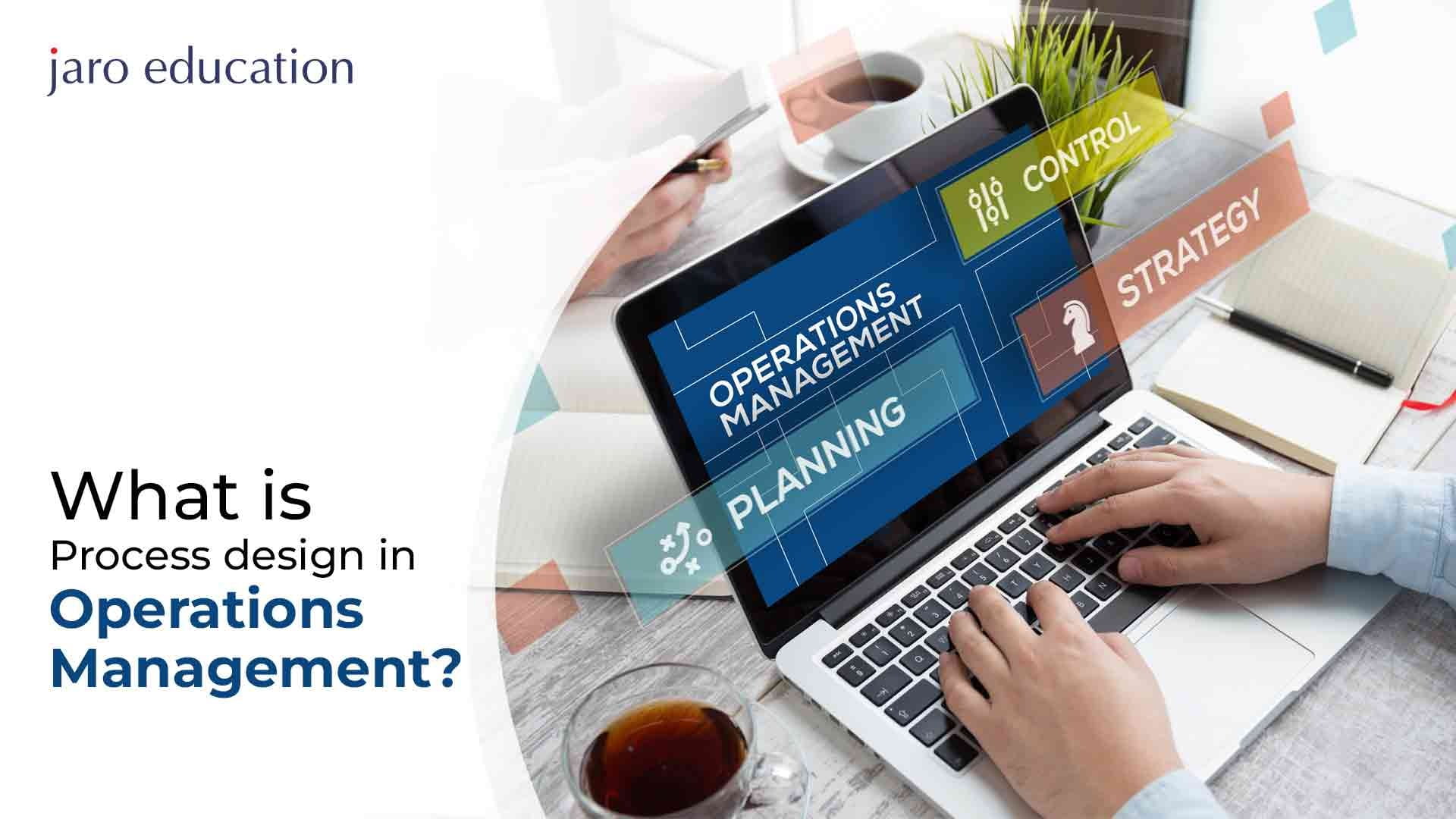4 Ways Digital Transformation Is Changing Project Management
Table of Contents

- jaro education
- 15, July 2023
- 3:00 pm
Digital Transformation has become a significant driver of growth and innovation. It denotes the incorporation of digital technologies into all aspects of an organisation, fundamentally changing the way businesses operate and provide services to their customers. One area where digital transformation is making a profound impact is project management. Traditional project management practices are being reshaped and optimised by implementing digital tools and technologies.
If you are a professional who wants to accelerate your career in digital transformation and project management, then the esteemed National Institute of Industrial Engineering’s Executive Certificate Program in Advanced Project Management and Analytics, stands out as the best option. The institute places a significant emphasis on hands-on learning and a curriculum that aligns with industry demands, ensuring a thorough comprehension of digital transformation in changing project management.
Notable Ways Digital Transformation is Revolutionising Project Management
Digital transformation is changing the fate of numerous job roles; project management is no exception. Below are the best 4 ways in which digital transformation is empowering project management.
1. Enhanced Collaboration and Communication
Overcoming Geographical Barriers
In the area of digitally transformed project management, geographical distances no longer hinder collaboration. Teams can seamlessly work together, regardless of their physical locations, for the following advancements:
Virtual Workspaces for Global Collaboration:
- Cloud-based project management platforms provide virtual workspaces that enable teams to access project information and documents, and participate in discussions from anywhere, fostering real-time collaboration.
Real-time Messaging and Collaboration Tools:
- Instant messaging apps and team collaboration tools allow project team members to communicate, share updates, and provide feedback in real-time, minimising communication gaps and delays.
Transparency and Access to Information
Digital transformation promotes transparency and ensures that project stakeholders have access to exact and up-to-date information. This transparency facilitates collaboration and informed decision-making through the means discussed below.
Centralised Project Documentation:
- Project management software offers centralised repositories where all project-related documents, including plans, specifications, and reports, can be stored and accessed by authorised team members.
Instant Communication with Stakeholders:
- Digital communication tools enable project managers to engage and update stakeholders easily, ensuring transparency and alignment throughout the project lifecycle.
Streamlined Workflows and Productivity
Digital transformation streamlines project workflows, eliminating inefficiencies and enhancing productivity. This is achieved through mechanisms like:
Efficient Task Allocation and Tracking:
- Project management software helps project managers to assign tasks, set track progress in real-time, and set deadlines, ensuring that everyone is aware of their responsibilities and project timelines.
Seamless Document Sharing and Version Control:
- Digital tools enable seamless document sharing and version control, eliminating the confusion and delays associated with managing multiple versions of project documents.
2. Automation and Efficiency
Automated Task Management
Digital transformation introduces automation into project management, enhancing efficiency and reducing manual effort. The following aspects of task management are streamlined through automation.
Task Tracking and Progress Reporting:
- Project management software automates task tracking, providing real-time visibility into task statuses, progress, and completion percentages. This automation eliminates the need for manual status updates and improves project monitoring.
Resource Allocation and Optimisation:
- Digital tools facilitate automated resource allocation, enabling project managers to assign resources based on availability, skills, and workload. This optimisation leads to efficient resource utilisation and improved project outcomes.
Streamlined Administrative Processes
Digital transformation simplifies administrative processes associated with project management. It aids in saving valuable time for project managers to focus on strategic activities. Here are the ways in which administrative tasks are automated.
Automated Reporting and Documentation:
- Project management software generates automated reports, including project status reports, resource utilisation reports, and financial reports, saving time and effort in manual report creation.
Meeting Scheduling and Reminder Systems:
- Digital tools offer automated meeting scheduling and reminder systems, reducing the administrative burden of manually organising and reminding team members of project meetings and deadlines.
Real-time Visibility and Reporting
Digital transformation provides project managers with real-time visibility into project progress, enabling timely decision-making and proactive management. The following features facilitate real-time visibility: For facilitating real-time viability, digital transformation provides certain features, as described below.
Dashboard-based Project Monitoring:
- Project management software offers customisable dashboards that display key project metrics and visualisations. These dashboards provide project managers with a comprehensive overview of project health, enabling them to identify potential risks or delays.
Predictive Analytics for Resource Planning:
- Digital tools equipped with predictive analytics capabilities allow project managers to forecast resource needs, anticipate bottlenecks, and proactively allocate resources, optimising project timelines and outcomes.
3. Data-Driven Decision-Making
Capturing and Analysing Project Data
Capturing and analysing project data is now easy for project managers with the advent of digital transformation. It enables data-driven decision-making throughout the project lifecycle. Here are the approaches that facilitate effective data utilisation.
Comprehensive Data Collection in Project Management Software:
- Project management software captures a wide range of project data, including task durations, resource utilisation, budgetary information, and milestones. This data forms the foundation for analysis and decision-making.
Integration with Analytics Tools for Data Analysis:
- Integration between project management software and analytics tools allows project managers to analyse project data and generate and identify patterns that impact project performance.
Insights for Proactive Decision-Making
By leveraging project data, project managers gain valuable insights that aid in proactive decision-making and risk management. The following actions enable proactive decision-making.
Identifying Key Performance Indicators (KPIs):
- Project managers define and monitor key performance indicators specific to their projects, like schedule adherence, cost variance, and quality metrics. These KPIs provide a basis for evaluating project health and making informed decisions.
Risk Assessment and Mitigation Strategies:
- Data analysis enables project managers to identify potential risks and implement appropriate mitigation strategies. By analysing historical data and identifying risk patterns, project managers can proactively address risks before they become significant issues.
Predictive Analytics and Forecasting
Project managers are well-equipped with predictive analytics capabilities, enabling them to forecast project outcomes and make data-driven projections. Below are the predictive analytics techniques that support informed decision-making.
Project Outcome Predictions:
- By leveraging historical project data, machine learning algorithms, and predictive analytics models, project managers can generate forecasts on project outcomes, such as project completion dates and anticipated project success rates.
Cost and Resource Optimisation:
- Predictive analytics helps project managers optimise costs and resource allocation by forecasting resource needs, estimating future expenses, and identifying areas where cost savings can be achieved.
4. Agile and Iterative Approach
Flexibility and Adaptability
Project managers can now adopt iterative approaches, fostering adaptability and responsiveness in project execution. The practices that promote flexibility are discussed further.
Agile Methodologies:
- Agile methodologies emphasise collaboration, iterative development, and frequent feedback loops. Project managers can leverage digital tools to implement Scrum or Kanban boards, allowing teams to break down projects into smaller, manageable tasks and adapt quickly to changing requirements.
Breaking Projects into Iterations and Sprints:
- Digital tools facilitate breaking projects into iterations or sprints, each with its set of deliverables and timelines. This approach allows for continuous improvement, feedback integration, and a more responsive project management approach.
Continuous Integration and Delivery
Digital transformation enables project teams to embrace continuous integration and delivery practices. It promotes seamless project delivery and customer satisfaction. To foster continuous integration and delivery, below are the ways in which digital tools help.
Iterative Development and Feedback Loops:
- With digital tools, project teams can work iteratively, delivering incremental project components and seeking feedback at each stage. This iterative approach enables early detection and resolution of issues, ensuring the final project meets stakeholder expectations.
Embracing Change and Responding to Customer Needs:
- Digital transformation allows project teams to adapt quickly to changing customer needs and market dynamics. By using digital tools, project managers can track customer feedback, identify areas for improvement, and adjust project direction accordingly.
Conclusion
Digital transformation is reshaping project management practices, allowing organisations to enhance collaboration, streamline processes, make data-driven decisions, and adopt agile methodologies. By utilising digital tools and technologies, companies can overcome challenges, drive innovation, and achieve successful project outcomes. It is essential for companies to embrace the opportunities brought by digital transformation to stay competitive and adapt to the evolving business landscape.
For aspiring candidates looking to enhance their competencies and expertise in project management, the NITIE Executive Certificate Program in Advanced Project Management and Analytics is an excellent opportunity. With interactive live sessions and real-life case studies, participants can nurture their professional skills further.
To learn more about the program and its offerings, register with Jaro Education soon.












